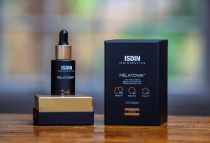Can Seasonal Allergies Cause Itchy Skin and Rashes?
Do you look forward to the seasons changing, or are you one of the more than 50 million people with seasonal allergies? For many people with allergies that come and go with the time of the year, skin problems are a common part of the picture. Itchy skin, along with irritating and unsightly red patches (rashes), can be a sign that you need something stronger than over-the-counter lotions to clear things up.
What Causes Skin to React to Seasonal Allergens?
The substances that trigger allergic reactions are called allergens, the most common seasonal allergens being pollen grains from weeds, grass and trees. The biggest culprit is the ragweed plant. Just one plant can release as many as 1 billion pollen grains, all of which are light enough to float and travel in the air. The plant, which causes the allergic reaction commonly called hay fever, can be found in almost all regions of the U.S. and parts of Canada. Although an allergic reaction to ragweed pollen is typically associated with sneezing and a runny nose, it can also cause allergic skin reactions such as hives.
Some people with eczema will see the skin condition flare up when they’re exposed to certain seasonal allergens. Eczema is caused by small areas of the skin that are not able to block allergens or germs. When allergens pass through the skin barrier and are detected by the immune system, the body reacts by triggering inflammation, which is a protective response. Unfortunately, the body’s immune system can’t tell the difference between germs that pose a threat and allergens that can be harmless.
A skin allergy reaction, or allergic contact dermatitis, occurs at the point where an allergen touches the skin. The localized rash that shows up is itchy, but it can also be painful and accompanied by blisters and raised bumps.
How Are Skin Allergies Treated?
Unfortunately, there is no cure for skin conditions caused by seasonal allergies, but they can be effectively managed. The number of people in the U.S. who are now managing their allergies and getting back to enjoying life is growing. Allergies are, overall, one of the most common health conditions in the U.S. and are also one of the top 10 leading causes of chronic illness.
One of the ways to prevent allergic reactions is avoidance. This means keeping windows closed in your home and car, wearing a hat and sunglasses outside and showering as soon as you get back indoors. This is, however, not always the most practical means of preventing allergic reactions. The right type of medical treatment, however, can relieve the itchy, painful, or unsightly symptoms of seasonal skin allergies.
Properly prescribed topical and oral medications can alleviate the symptoms, and non-invasive skin patch testing can identify the allergen responsible for the reactions. An accurate diagnosis is an important first step in symptom management. A thorough exam accompanied by allergy testing and a review of your health history will help determine the exact cause of the problem.
When Should Immediate Medical Help Be Sought?
If the nature of an allergic skin reaction is a combination of swelling and hives, especially if widespread, you should seek immediate medical treatment. The condition could quickly worsen, lead to breathing difficulty, and could become life-threatening. You should also seek immediate medical attention if any skin condition develops pus, appears to be infected or starts bleeding.
Want to Start Enjoying the Great Outdoors Again? We’ll Get You There.
There’s no reason to hide indoors to avoid unpleasant skin conditions triggered by seasonal allergies. Call Dermatology San Antonio at 210-615-7171 or contact us online to schedule an appointment with one of our board-certified dermatologists. When you make an appointment at the Dermatology San Antonio office, know that you will be treated with respect and understanding. We take great pride in our results and look forward to demonstrating how we’ve earned the confidence and trust of the growing number of patients we’ve helped.















